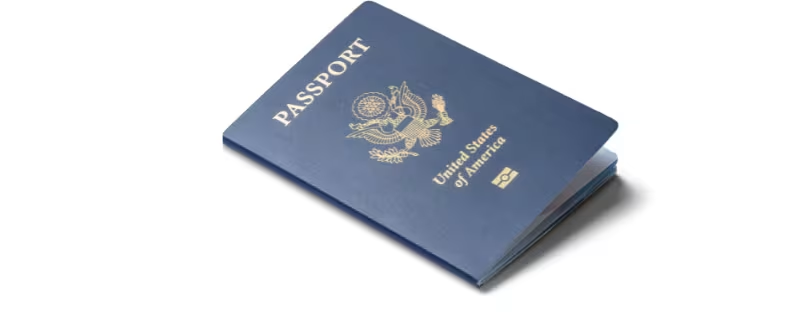
Smart cities and tourism: Creating seamless urban experiences
Smart cities are revolutionizing the way tourists experience urban destinations by leveraging technology and data-driven solutions. By integrating various smart technologies, these cities aim to provide seamless and enhanced experiences for tourists, making their visits more convenient, sustainable, and enjoyable.
In this article, we will explore how smart cities are transforming tourism and creating seamless urban experiences.
Smart Transportation and Mobility
Smart cities prioritize efficient transportation and mobility solutions to improve the tourist experience. They offer integrated systems that provide real-time information on public transportation schedules, traffic congestion, and available parking spaces. Tourists can access mobile apps or digital platforms to plan their journeys, find the best routes, and make use of shared mobility options such as bike-sharing or car-sharing services. This seamless transportation network ensures hassle-free exploration of the city’s attractions and reduces congestion.
Smart Tourism Information and Services
Smart cities provide tourists with comprehensive and personalized information through various digital channels. Mobile apps, interactive kiosks, and augmented reality (AR) applications offer real-time information about attractions, events, cultural sites, and dining options. These platforms provide personalized recommendations based on tourist preferences, enabling them to create customized itineraries and make the most of their visit. Additionally, smart cities deploy multilingual chatbots or virtual assistants to assist tourists, answer queries, and provide guidance throughout their journey.
Sustainable Practices and Environmental Conservation
Smart cities prioritize sustainability and environmental conservation in their tourism strategies. They implement smart infrastructure and solutions to reduce energy consumption, promote renewable energy sources, and manage waste effectively. For instance, smart waste management systems utilize sensors and data analytics to optimize collection routes, leading to reduced environmental impact. Smart cities also encourage eco-friendly practices among tourists, such as promoting cycling or walking tours and providing incentives for using public transportation.
Smart Safety and Security
Safety and security are paramount for tourists, and smart cities employ advanced technologies to ensure a secure environment. Video surveillance systems equipped with analytics and facial recognition capabilities enhance safety in public spaces. Emergency response systems, including smart alerts and geolocation services, enable quick assistance in case of emergencies. Furthermore, smart cities leverage data analytics to identify patterns and predict potential security threats, allowing for proactive measures to maintain a safe environment for tourists.
Key Companies in the Field Tourism in smart cities
Several key companies are leading the way in the field of smart tourism, leveraging technology to enhance the travel experience and drive innovation. Here are some notable companies making significant contributions in this space:
- Airbnb: Airbnb is a renowned online marketplace and hospitality service that has revolutionized the accommodation sector. By connecting travelers with unique and personalized lodging options, Airbnb has disrupted traditional hospitality models and embraced technology to create a more immersive and localized travel experience.
- TripAdvisor: TripAdvisor is a leading travel platform that provides travelers with a wealth of information, reviews, and recommendations for accommodations, restaurants, attractions, and more. Through its user-generated content and robust travel community, TripAdvisor has become a go-to resource for travelers seeking insights and guidance.
- Expedia Group: Expedia Group is a multinational travel technology company that operates various online travel agencies, including Expedia, Hotels.com, and Vrbo. Expedia Group offers a comprehensive suite of travel services, from flight and hotel bookings to car rentals and vacation rentals, empowering travelers with a wide range of options and seamless booking experiences.
- Booking.com: Booking.com is a popular online travel agency that enables travelers to search, compare, and book accommodations worldwide. Known for its extensive inventory of hotels, apartments, and other lodging options, Booking.com provides travelers with a user-friendly platform and a seamless booking process.
- Google: Google’s presence in the smart tourism field is significant, offering a range of services that shape travel experiences. Google Maps provides navigation and location-based services, while Google Flights helps travelers find and compare flights. Google’s search engine and advertising platforms also play a pivotal role in connecting travelers with relevant travel information and services.
- Amadeus: Amadeus is a global technology provider for the travel industry, offering solutions for travel agencies, airlines, hotels, and other travel companies. Their innovative technologies, such as reservation systems, airline IT solutions, and travel management platforms, streamline operations and enhance the efficiency of travel businesses.
- TUI Group: TUI Group is a multinational travel and tourism company that operates various travel brands and services. TUI Group offers a wide range of travel experiences, including package holidays, hotels, cruises, and tours. The company embraces technology to enhance customer experiences, from online bookings to personalized recommendations and digital travel services.
- Ctrip: Ctrip, also known as Trip.com, is a leading online travel agency based in China. With a strong presence in the Asian market, Ctrip offers a comprehensive range of travel services, including flight and hotel bookings, vacation packages, and local experiences. Ctrip leverages technology to cater to the needs of Chinese travelers and provide seamless travel experiences.
These companies are just a few examples of key players in the smart tourism field, showcasing the innovative use of technology to enhance travel experiences, streamline operations, and connect travelers with relevant services and information.










